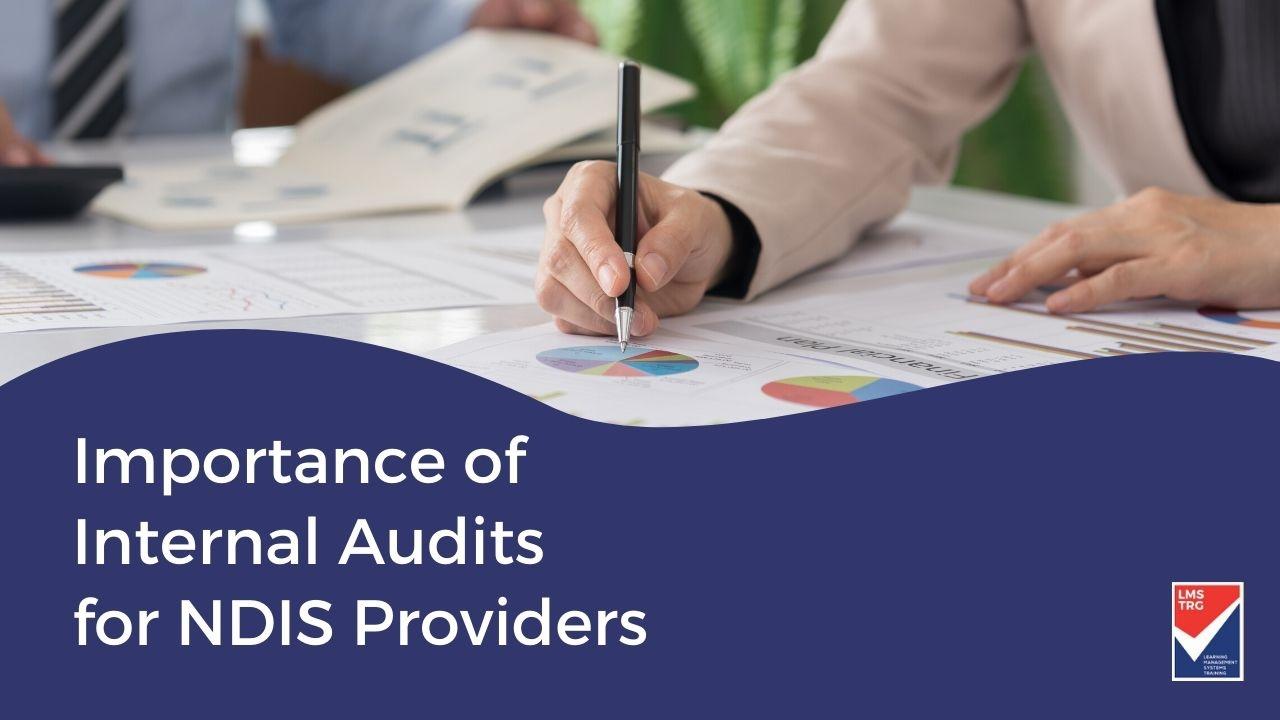The Importance of NDIS Internal Audits

National Disability Insurance Scheme (NDIS) service providers must implement and document an internal audit program. There is no way to avoid it. It is part of the requirements for providing NDIS services. And, in reality, internal audits empower your organisation. It helps identify the risks to the organisation and reveals potentially hidden problems so that you can manage your business proactively.
Besides meeting regulatory requirements, internal audits build trust and confidence in an organisation’s clients and their families.
What is Internal Audit?
Internal audit is also known as a first-party audit. You need to conduct an internal audit regularly. Apart from being a mandatory requirement, it gives you confidence that the organisational processes and procedures meet their intended outcomes. The outcome of internal audit indicates how effectively the organisation operates.
During an internal audit, you assess the effectiveness of implementation and compliance against the NDIS Quality Indicators.
Why is internal audit important?
Internal audit is a key element of reviewing an organisation’s systems. While every NDIS organisation has to have an internal audit plan, it also helps organisations to function better. Some of the reasons for completing an internal audit include the following:
- Providing evidence of compliance with NDIS rules and regulations.
- Stakeholders, such as the NDIS and participants and their families, have a guarantee the organisation is on track.
- Evidence of meeting NDIS Division 2 – Governance and Operational Management of NDIS Quality indicators section 13(2).
- Active involvement in the continual improvement cycle.
- Keep your systems up to date.
Internal auditors:
- Identify gaps in the organisation’s systems implementation.
- Look for significant deviations from the required procedures.
- Analyse business changes that can cause procedures to cause undesirable results.
- Check evidence to ensure the system is working as it should to meet its objectives.
Objectives of NDIS Internal audit
NDIS providers are in the spotlight so you cannot get away with poor work practices, policies and procedures. You provide services that increase people’s quality of life. But delivering poor services can put clients' lives at risk.
Internal audits provide your organisation insight into how you are meeting the NDIS quality indicators. You can also see how your systems are working, whether there are gaps and what improvements you need.
-
Internal audits provide transparency
With the pressure on NDIS providers to provide top-level services, internal audits provide transparency. It allows you to monitor the organisation’s governance. You can then evaluate your standards, processes and plans to achieve organisational objectives. This demonstrates whether the organisation serves its stakeholders ethically and legally. An internal audit also gives insight into whether you meet NDIS Practice standards, for example:
- reporting requirements
- documenting complaints and incident handling
- notifying the NDIS of reportable incidents.
-
Fully documented risk assessment and management
Disability service providers face risks every day. It is unavoidable due to the nature of their service provision. Every service provider needs to implement a fully documented Risk Management System. During risk assessment and management, you identify how to manage all risks to the organisation, employees and participants.
Internal Audit looks at the organisation’s tolerance for risk, what plans it has for identifying and mitigating risks, and how you communicate and monitor them. It gives assures that all risks are correctly identified and evaluated. Internal audits can also identify emerging or unidentified risks that need attention.
Internal audits are vital to ensure your organisation complies with the strict guidelines of the NDIS Quality and Safeguards Commission. NDIS providers must meet stringent reporting requirements which link to the risk management system for:
- complaint and incident management
- work, Health and Safety
- financial, information and human resource management
- organisational governance.
Using smart assessment tools can help an organisation establish a risk management system. This assists you in identifying, evaluating, taking action and documenting key risk areas.
-
Provides evidence of continuous improvement
The NDIS expects all service providers to provide documented evidence of continuous improvement in all areas of the organisation. This means your internal audits need careful planning to prove consistent progress.
Internal audits are invaluable for collecting evidence, demonstrating compliance and sharing the results, as required. It demonstrates you systematically record data, review and measure progress, and rate the performance of employees and the organisation.
Organisations often fear Internal Audits. However, there is nothing to fear when you comply with NDIS requirements. Good systems, documenting complaints and incident handling, regularly updating risks and how to manage them should be part of the organisation’s normal operations. When compliance is part of your system, internal audits provide evidence of continual improvement and compliance. This is important to the NDIS, and your clients and families as it builds trust in your services.

Who We Are
At core, LMS TRG is a compliance consulting and training organisation that builds and delivers powerful and practical products for people and businesses. Born and bred in Melbourne, Australia with an amazing team of expert auditors, consultants, and entrepreneurs.
Our area of expertise lies in providing training and guidance on compliance with the National Disability Insurance Scheme (NDIS) and the International Organisation for Standardisation (ISO). We also assist organisations in implementing effective management systems that are tailored to their specific needs and requirements. Our comprehensive approach to compliance training and management systems ensures our clients have the knowledge and tools necessary to meet regulatory requirements and industry standards. We are committed to helping our clients achieve success and maintain a culture of excellence in their operations.
We Care for each other, our members, and our society.
We Dare to discover and experiment, trying to be different and be fearless, and innovative.
We share our knowledge and experience, work together and continue to support our members.
Join The Community
Our email content is full of value, void of hype, tailored to your interests whenever possible, never pushy, and always free.




